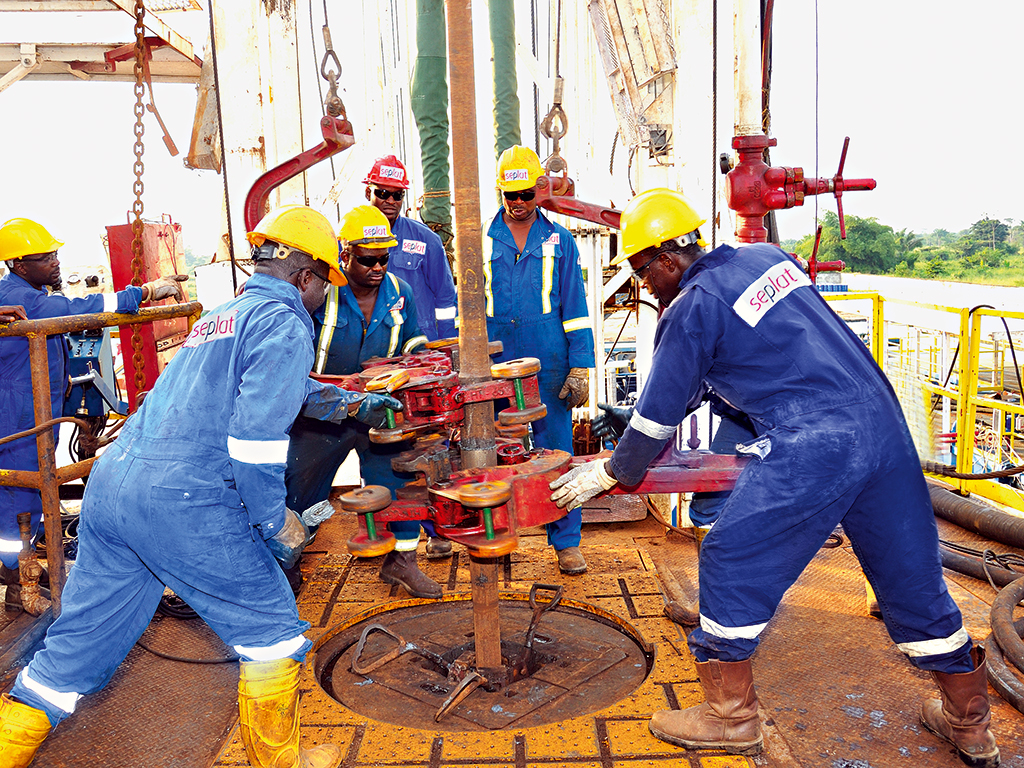
Oritsegbubemi Omatseyin
Lagos — Seplat Energy PLC, a leading Nigerian independent energy, recently announced its unaudited results for the first quarter of the year 2023. The results show Seplat Energy‘s improvement, sustainability, and impressive growth.
In Q1 2023 Seplat Energy Revenue from oil and gas sales was $330.9 million, a 36.9% increase from the $241.8 million achieved in Q1 2022, Gross profit increased by 69.0% to $198.3 million from $117.3 million in Q1 2022, Direct operating costs, which include crude-handling charges (CHC), barging/trucking, operations, and maintenance costs, amounted to $45.3 million, 21.2% higher than $37.4 million incurred in Q1 2022, The operating profit for the period was $103.7 million, an increase of 1.6%, compared to $102.1 million in Q1 2022.
General and administrative expenses of $20.5 million were 7.9% higher than the Q1 2022 costs of $19.0 million, driven by a 24.1% increase in employee benefits, reflecting the cost-of-living adjustments on staff salaries and emoluments.
Overall, oil and gas production for Q1 2023 period totaled 4.7 MMboe compared to 4.3 MMboe in the same period in 2022.
Seplat Energy’s liquids (oil and condensate) operations produced 2.7 MMbbls on a working interest basis in Q1 2023 compared to 2.6 MMbbl in Q1 2022. Average working interest production continued to improve in Q1 2023, closing in the upper half of the guidance range set at 45-55 kboepd at 51,720 boepd, 8.6% higher than 47,628 boepd in Q1 2022.
The split across liquids and gas was 59% liquids and 41% gas, as liquids grew by 4.2% to 30,331 bopd higher than 29,105 bopd of Q1 2022 while gas grew 15.5% to 124.1 MMscfd higher than 107.4 MMscfd of Q1 2022.
The increase was largely driven by the new Oben-34 gas well coming on stream. In addition, the use of Asset earning power (AEP) has provided a significant boost to production, adding an export route that has optimized oil and gas production from the western assets resulting in third-party downtime of 7% in the period.
Third-party deferment for the Group was 20%, which was majorly impacted by the high deferments rate on Ohaji, mainly caused by tank top issues triggered by election restrictions at the Waltersmith refinery and the TEP outage affecting production in OML 40.
Seplat Energy 2023 drilling program has 18 wells planned to arrest the decline and grow production across the assets (including non-operated assets). In the first quarter of the year, OP-17, which was accelerated into the 2022 program and spudded in December was completed and producing at a gross rate of c.3,000 bopd.
The Sibiri-2 well in OML 40 has been drilled to TD, with target reservoirs completed and currently awaiting approval to stream the well. The drilling of the remaining three wells planned for Q1 (Ovhor DMFU-03, Orogho 8, and GB-J) is ongoing and upon completion expected to produce a combined gross rate of c.4000 bopd and 20 MMscfd of gas.
Working interest gas volumes for the period was 124.1 MMscfd (9M 2021: 107.4 MMscfd). The Gas business contributed 41% of the Group’s volumes on a boepd basis and 10% of Group revenues. Gas sales volumes in the period were supported by the new Oben-34 well, which increased gas sales to customers. In addition, improvement in oil evacuation during the period led to a recovery in associated gas volumes.
The key investment opportunities considered included selective entry to off-grid power generation using gas-fired generation integrated with solar and offset possibilities on a wide range of emission reduction activities in various global carbon markets. Seplat Energy has commenced commercial due diligence and third-party validation of the identified opportunities toward the Final investment decision (FID) target of before the end of 2023.
The Safety and Responsible Operations which is critical in the delivery of Seplat Energy’s strategy, also recorded impressive results. The Company achieved more than 3.8 million hours without Lost Time Injury (LTI) on our operated assets. Staff and contractors worked 1.9 million hours without fatalities or LTI for the period. There were 16 HSE incidents in total, lesser than 23 incidents in Q1 2022. Notably, there are no records of any spills in the first quarter.
The estimated carbon intensity for operated assets was 26.4 kgCO2/boe. The company continues to implement initiatives to bring emissions lower such as the Flares Out project and has completed a 72-hour reliability run of units 1 and 2 of the Sapele Accelerated AG solutions. The AG solution is expected to process c.26 MMscfd and will make a significant contribution to flared gas utilization, reducing emissions and carbon intensity.
Concerning the Proposed acquisition of Mobil Producing Nigeria Unlimited (MPNU) The Board remains confident that the transaction will be approved and will continue to work with all parties to achieve a successful outcome and will provide further updates as appropriate.
Seplat Energy retains its working interest production guidance of 45,000 to 55,000 boepd for the rest of 2023 (which excludes any expected contribution from MPNU or ANOH) and capital expenditure for 2023 is expected to be around $160 million.
Basil Omiyi, Independent Chairman, said “Seplat Energy’s management and staff have once again delivered excellent performance, with production volumes up, unit production cost down and strong cash generation enabling the Board to increase our annual core dividend target from US 10 cents to US 12 cents per share, paid in equal quarterly dividends. As a result, we have declared a Q1 2023 dividend of US 3 cents per share.
“The year has started strongly, and we are now seeing the benefits of the AEP, through which we are exporting significant amounts of oil. On the ANOH gas plant, our partners have made good progress in the quarter on delivering the OB3 and Spur pipelines, as well as the necessary gas wells, and we maintain Q4 2023 for the first gas. We continue to engage with all relevant parties in the proposed acquisition of MPNU and are confident of a successful outcome.
“I wish to thank all our staff for remaining focused on delivering this strong performance, united in their support of Seplat’s management team, against a backdrop of unnecessary distractions that will not derail our progress and ambition to become Nigeria’s leading energy supplier.
“The Board announced its Succession Forward Plan earlier this month and I look forward to steering this national energy champion in my final year as Chairman, fully resolved to implement the strong corporate governance that will enable Seplat Energy to grow and achieve its ambition to create a sustainable business that maximizes returns for all stakeholders, while delivering an energy transition that drives social and economic benefits for all Nigerians.”
Seplat Energy PLC (Seplat) is Nigeria’s leading indigenous energy company. Listed on the Nigerian Exchange Limited (NGX: SEPLAT) and the Main Market of the London Stock Exchange (LSE: SEPL), The company is pursuing a Nigeria-focused growth strategy in oil and gas, as well as developing a Power & New Energy business to lead Nigeria’s energy transition.
Seplat’s energy portfolio consists of seven oil and gas blocks in the prolific Niger Delta region of Nigeria, which is operated with partners including the Nigerian Government and other oil producers with a revenue interest in OML 55.
Seplat Energy operates a 465MMscfd gas processing plant at Oben, in OML4, and is building the 300MMscfd ANOH Gas Processing Plant in OML53 and a new 85MMscfd gas processing plant at Sapele in OML41, to augment its position as a leading supplier of gas to the domestic power generation market.
Follow us on twitter



